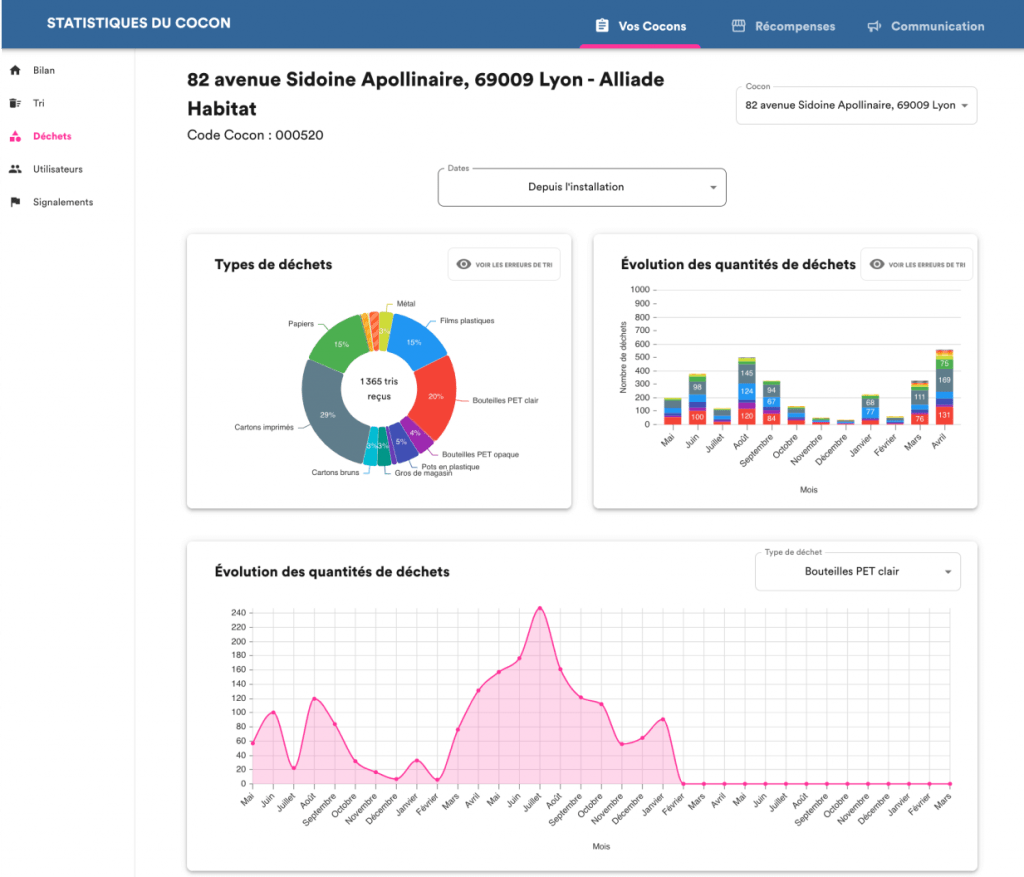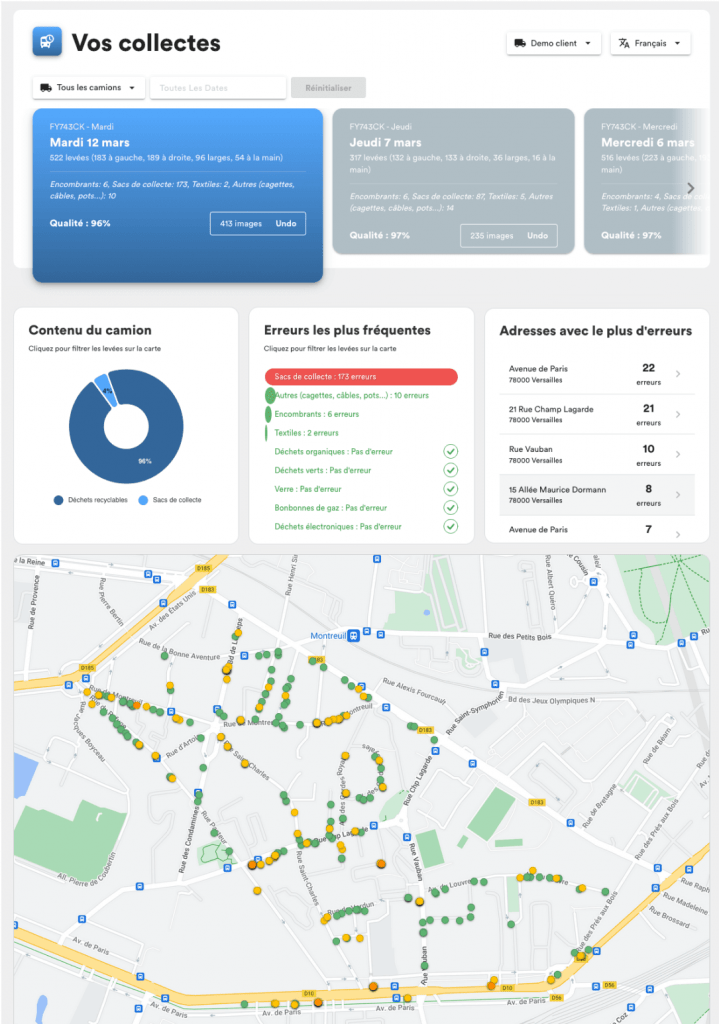Waste management in France is entering a decisive phase, with the implementation of performance contracts which make performance a major issue. Faced with this requirement, local authorities, eco-organizations and waste operators must take on numerous challenges to improve recycling and waste recovery.
In this context, Minister Agnès Pannier-Runacher recently announced the establishment of performance contracts between the State and local authorities. These agreements aim to strengthen the efficiency of waste management through incentive mechanisms and targeted financial support, thus promoting a more sustainable and efficient system.
Official figures on waste production and recycling in France are regularly updated in the environmental assessment of the Ministry, which constitutes a valuable source for better understanding these issues.
The minister is not introducing any concrete new measures that would change the situation compared to the Household and Similar Waste Performance Contract (CPDMA), but rather a more cautious and gradual vision, based on awareness-raising, gentle incentives and dialogue.
An existing framework: the Household and Similar Waste Performance Contract (CPDMA)

Even before this new phase announced by the minister, some communities are already experimenting with innovative approaches via the CPDMA. Set up by theADEME, this contract aims to integrate waste prevention and management into a contractual framework, based on measurable performance objectives.
The CPDMA is based on a competitive dialogue between communities and operators, promoting a gradual adaptation to local specificities and a more incentive-based than punitive approach.
This approach illustrates a desire for gradual transformation, consistent with the current cautious vision, which favors awareness and dialogue rather than immediate coercive measures. Several communities, such as Grand Montauban or Valence Romans Agglomération, methodologically supported by theADEME, are experimenting with this model to adjust solutions adapted to their territory.
This experience, widely documented by specialist actors such as PRIMER, could serve as a basis for strengthening the effectiveness of future performance contracts at the national level, while respecting local realities.
Bonus-malus for waste management: financial lever to improve sorting

The bonus-penalty system rewards efficient communities and financially penalizes those that do not meet the objectives.
If the authorities adopt this mechanism, it will apply as soon as local authorities do not meet sorting performance standards.
This performance concerns key materials, such as plastic, glass or cardboard.
Progressive bonuses and penalties: how are penalties and rewards calculated in performance contracts?
The amount of the penalty, calculated according to the “missing” tonnes, would increase gradually thanks to a modulation factor.
At the same time, the bonus would translate into additional incentive support, such as financial and technical assistance.
Concrete solutions to improve sorting performance
This support could encourage investment in concrete solutions, such as the acquisition of chipped bins or the installation of smart containers.
They would also make it possible to use artificial intelligence to analyze the composition of waste in real time and optimize recovery.
At the same time, the implementation of incentive collection systems, such as user identification or volume counting, would increase awareness.
Targeted communication and training of sorting ambassadors would sustainably improve sorting performance.
Between equity and performance: what are the long-term implications?
However, the implementation of this system raises questions of fairness.
Urban density and socio-demographic composition influence the success of selective sorting.
If implemented, this bonus-penalty scheme would mark a further step towards the implementation of an incentive tax, in line with European requirements aimed at increasing recycling and reducing landfilling.
Unanswered questions: what measures to come?
Although the idea of a bonus-penalty system has been circulating for some time, no final decision has yet been announced. The government has not specified whether more incentive-based measures, such as deposits for recycling bottles and cans, or an already operational penalty system, will be implemented soon.
These decisions are all the more crucial since the European Union has imposed a target of 80,000 tonnes of separate collection of plastic bottles and cans by 2026. If this target is not reached, the instruction will become mandatory in 2029. However, in 2022, France only showed a collection rate of 60,3 %, a figure well below expectations.
Sorting performance: what are the challenges facing communities?
Local authorities play a central role in waste management. However, they face several obstacles:
1️⃣ A lack of precise data
It's difficult to improve sorting if you don't know exactly where the problems lie. Currently, local authorities lack detailed information on the quality of sorting in their areas, making it difficult to implement targeted actions.
2️⃣ Incentives that promote awareness
Today, the Minister for Ecological Transition, Agnès Pannier-Runacher, is not planning any recycling deposits or bonus-penalty schemes.
The government instead favors performance contracts between the State, local authorities and eco-organizations.
They are primarily focused on awareness and goodwill.
3️⃣ Significant disparities in performance between territories
Some regions are making significantly more progress than others in recycling. For example, in Bourgogne-Franche-Comté, local authorities collected 83,100 tonnes of plastic bottles in 2021, while this rate drops to 27,100 tonnes in the overseas territories and just 3,100 tonnes in Mayotte.
Towards more efficient sorting in France?

Performance contracts are a positive first step. However, they may not be enough to meet regulatory requirements or achieve 80,000 % of collections by 2026.
Without coercive measures such as the waste bonus-penalty system, France risks not meeting its commitments and will have to introduce a deposit system to comply with European regulations.
However, there are ways to accelerate the ecological transition. By adopting technological solutions such as those developed by File, communities and waste operators can:
- Analyze sorting quality in real time
- Quickly identify weak points (bad practices, underperforming areas)
- Implement targeted awareness and support campaigns to improve the collection rate.
What if the future of sorting involved detailed knowledge of sorting errors and intelligent support for citizens?
Conclusion: assets in hand to succeed in the transition
By betting on the performance contracts, France is entering a new phase in waste management. However, the lack of incentives such as deposits or bonus-penalty schemes is an obstacle.
Furthermore, strong territorial disparities accentuate this difficulty.
There is still a long way to go to achieve European objectives.
Awareness and goodwill are essential, However They must rely on technological tools and a data-driven approach. By combining these innovative solutions and increased political commitment, communities will be able to accelerate the ecological transition. They will also ensure more efficient recycling.
🔗 To go further
Do you want to make sorting performance a real lever for continuous improvement?
With Ficha, measure sorting quality, manage your awareness-raising efforts, and improve your sorting performance. From collection to pre-collection, our solution integrates as a complete solution.



